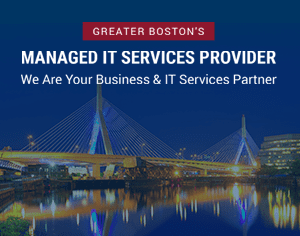Blog

What are the Advantages of IaaS & Cloud Computing?
While the reasons behind considering a cloud based network infrastructure may vary, businesses across all industries and sizes are turning to the cloud to scale their organization. The adoption of cloud services is accelerating at a much more rapid pace than previously anticipated, with a considerable amount considering an Infrastructure-as-a-Service (IaaS) environment.
But what are the benefits to cloud, and more importantly, what does IaaS mean? I sat down with some of our internal experts to discuss what they think, and where they see the greatest changes while implementing newer IT strategies.
What is IaaS Cloud Computing?
IaaS Cloud Computing is a form of cloud computing that provides the ability for businesses to utilize virtual computer resources at their fingertip, without limitations on flexibility or the ability to scale.
In an IaaS type model, 3rd party providers host the hardware, software, servers, storage, and all infrastructure components on behalf of its users.
What are some of the other benefits IaaS Cloud Computing offers for those considering this option?
- Guaranteed Uptime: All businesses should be investing in solutions that offer a robust recovery plan, as well as solutions that eliminate downtime. A seemingly complex and costly venture for new businesses. However, IaaS includes complete backup & recovery of all pertinent data being stored in their environment.
- Secure Environment: Lost laptops are a billion-dollar industry. What can be potentially more dangerous is the loss of the sensitive data inside it. Thankfully, in a cloud computing environment, the data is stored off the machine, allowing not only remote access from anywhere to information, but the added benefit of remotely wiping data from lost laptops, keeping it out the wrong hands.
- Flexibility: The flexibility of cloud-based offerings is ideal for growing businesses. Scaling capacity up or down based on a today’s demands, paying only for the resources needed, with peace of mind knowing capacity can easily be updated any time.
- Maintenance & Updates: One of the best conveniences offered with IaaS includes hosting the daily applications a business uses, as well as managing system maintenance, applying patches, ensuring seamless backup, and recovery strategy implementation for users.
What about the up-front Costs?
The benefit to an IaaS model is an overall lower infrastructure cost or investment when compared to the alternative solution of in-house hardware. The pay-as-you-go model means businesses only pay for what is needed, eliminating large fixed monthly fees for things they may not ever use. There is no demand for up-front cost.
For smaller businesses who may lack the same up-front capital as large corporations, IaaS provides a competitive edge. In fact, small businesses are twice as likely as a large company to implement cloud-based solutions.
What functionalities are lost or gained in moving toward Cloud Computing?
Business maintain all control over their ability to control the operating system, manage individual user access/privileges, as well as control over their applications. In fact, there is a greater range of freedom in accessing these areas from anywhere, so administrators can control these areas remotely.
However, certain applications can prove to be a bit more problematic in migrating to the cloud, such as QuickBooks, where certain variations prove incompatible. Also, while reliability and access are paramount to the providers, if internet connectivity is lost at the business, or for a user, all applications and/or files are no longer accessible.
Security can also become a tricky area of concern given that it is being managed by the provider. While maintenance and security patches are kept current, there is still an associated risk, albeit mitigated with the built-in redundancy for backup & recovery.
The freedom to change platforms can be more cumbersome as well if a business decides to move away from a cloud-based IaaS, while scaling up/down is easy, migrating completely away can require more technical expertise.
One of the other considerations is the security of data now that it is out of the control of the business. It requires trust in their physical security, employees, and contractors. A thought some businesses just aren’t comfortable with yet.
Contributors: Chris Souza, COO, Tom Perry, Field Service Manager, Kenneth Sprague, Managed Service Engineer, Scott Evans, Internal Support Engineer, Tyler Reid, Internal Support Engineer
Confident with Your IT Strategy?
If you found the information in this blog post helpful and you'd like to discuss your business' technology strategy, then we'd be happy to hear from you.
Categories
- Backup & Disaster Recovery
- Business Operations
- Case Studies
- Cloud Services
- Cyber Security
- Employee Spotlight
- Finance & Budgeting
- Glossary Term
- Governance & IT Compliance
- Managed Services
- Mobile Device Management
- Network Infrastructure
- NIST 800-171 & CMMC 2.0
- PCI
- Podcast
- Project Management
- TSI
- Uncategorized
- vCIO
Cyber Security Policy Starter Kit:
10 Critical Policies That Every Company Should Have in Place


